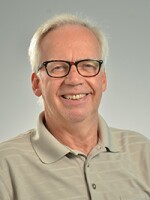It seems odd that Sporting Kansas City would make a presentation this week at a national sustainable agriculture summit.
After all, professional sports eat up lots of resources: jet and diesel fuel for trips to away games, water to keep the turf or fairways looking lush and electricity to fire up their fans and keep score.
But for almost two years, Sporting’s been focused on food waste, which the World Wildlife Fund says in the U.S. generates greenhouse-gas emissions comparable to what about 37 million cars pump out. Wasted food also squanders what it takes to grow, harvest, transport and package it.
These statistics caught the attention of Kellen Smith, who oversees sustainability for Sporting.
“There are so many stats that are going through my mind,” Smith said. “They all have a serious rate of severity, so we think we can rely on those to make those changes.”

The connection dates back to 2017, when the ag summit was in Kansas City. Bradford Warner, vice president for marketing and sustainability for Kansas City-based Agspring, met with Sporting KC front-office personnel and discovered that they had that common concern.
“Attacking food waste is something that we now know you can do in your home every evening and it will make a disproportionate impact on subjects like climate change,” Warner said.
Warner knew about Sporting’s success on the field, as they were coming off of a U.S. Open Cup championship in 2017. And it’s translated into a partnership.
“I think when you look at an organization, you say, ‘Tell me what’s important to you. Tell me what you do,’” he said. “Certainly selling tickets, showing TV ratings, showing trophies — Sporting Kansas City does that and they do it very, very well.”
Two months into the 2018 season, Sporting began taking all its food scraps from the concession stands and the private suites and turns it over to a biotech service that recycles it into fertilizer use. (Sporting wouldn’t tell KCUR which food items are the most prevalent in the food scraps.)
But the team didn’t just keep its platform limited to home games at Children’s Mercy Park.
“We’ve been focusing heavily with our Sporting club network, which is our youth network that spans throughout the Midwest, over seven to nine states,” Smith said.
The team is offering incentives like home-game tickets, merchandise and fan experiences for soccer families who fill out pledge cards to reduce food waste and follow up on how they’re doing.
“We had very substantial numbers of people, even just over the partial season of 2018 and say, ‘Hey, I’m going to make a pledge,’” Warner said. “‘I’m going to make a commitment in my family and in the way we run things to try and reduce food waste.’”
Sporting’s presentation at the Sustainable Agriculture Summit on Wednesday in Indianapolis was titled “Tackling Food Loss and Waste: A Case Study and Workshop.” It’s a topic that Sporting says it doesn’t plan to give up, not during the 2020 season or beyond.
Greg Echlin is a freelance sports reporter for KCUR 89.3.





